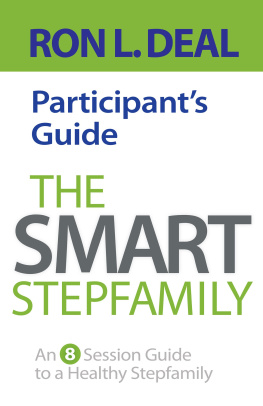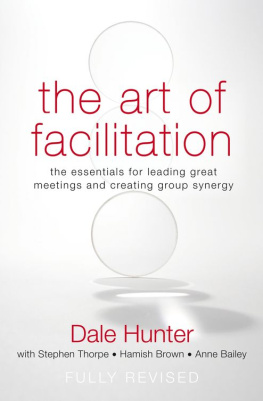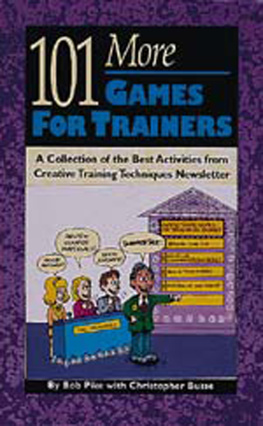MODERATING
FOCUS
GROUPS
Thomas L. Greenbaum
MODERATING
FOCUS
GROUPS
A Practical Guide for Group Facilitation
Copyright 2000 by Sage Publications, Inc.
All rights reserved. No part of this book may be reproduced or utilized in any form or by any means, electronic or mechanical, including photocopying, recording, or by any information storage and retrieval system, without permission in writing from the publisher.
For information:
| Sage Publications, Inc. 2455 Teller Road Thousand Oaks, California 91320 E-mail: Sage Publications Ltd. 6 Bonhill Street London EC2A4PU United Kingdom Sage Publications India Pvt. Ltd. M-32 Market Greater Kailash I New Delhi 110 048 India |
Printed in the United States of America
Library of Congress Cataloging-in-Publication Data
Greenbaum, Thomas L.
Moderating focus groups: A practical guide for group facilitation /
by Thomas L. Greenbaum.
p. cm.
Includes index.
ISBN 0-7619-2043-9 (cloth: alk. paper)
ISBN 0-7619-2044-7 (pbk.: alk. paper)
1. Focused group interviewing. 2. Social sciencesResearch.
I. Title.
H61.28.G73 2000
001.4'33dc21 99-006959
This book is printed on acid-free paper.
02 03 04 05 06 7 6 5 4 3 2
Acquisition Editor: Editorial Assistant: Production Editor: Editorial Assistant: Typesetter: Indexer: Cover Designer: | Harry Briggs Mary Ann Vail Sanford Robinson Cindy Bear Janelle LeMaster Jeanne R. Busemeyer Candice Harman |
To Rosalie Montag Greenbaum
My Wife, Best Friend, and Favorite Person
Life With You Has Been a Wonderful Trip...
I Look Forward to the Next 30 Years!
and
To My Brother Allie...
Having You Back in the East
After All These Years
Means More Than You Will Ever Know.
PREFACE
A fter completing a comprehensive revision of The Handbook for Focus Group Research, I promised myself this would be my last literary endeavor. It was my fourth book, and the third about focus groups (the other was about the consulting business), and I could not imagine identifying enough new material to warrant another revision of the Handbook. Beyond that, it seemed that I had said all I could about the profession to which I have dedicated the past 5 years of my working life. However, as I have continued to lecture at graduate schools of business, speak at conferences, and write for various magazines, I have come to realize that there is more information about focus groups to be shared with the profession.
As a result of the contacts I have made through my most recent book, my magazine writing, and the lecturing I have done, it has come to my attention that there has been an increase in inquiries from prospective, new, or even established moderators who want to improve their overall skills as a facilitator of focus groups. Though I have been aware for some time that there are formal courses offered by different organizations to train people to be moderators, the feedback I have received from people who have attended them has not been particularly positive, so I feel there is a real gap between what is available and what people are seeking. Perhaps the courses were good and the students bad, but it was clear to me that these courses were not achieving the objectives that at least some of the participants had for the instruction.
When I first considered the idea of writing a book on moderating, my initial reaction was that there was not enough material to fill an entire text. Further, I had always felt that moderating focus groups, or any other type of meeting, was something one learned by doing and that it would be extremely difficult to reduce the principles to writing and to create a meaningful text on the topic. Despite this initial reaction, I began to analyze the moderators role in the qualitative research process, focusing mostly on the focus group methodology because of my personal bias toward that technique. The more I began to dissect this function, the better I began to feel about the possibility of a book. As a result of this analysis, I convinced myself that a great deal could be communicated to a target audience about moderating focus groups that would be useful to almost anyone in the field or others who were considering this as a career.
The text that follows is a result of this analysis. I hope you will find it to be a helpful guide that will provide the type of information that will make you a better moderator. As I discuss in later chapters of this book, the moderator of the future is someone who will be expected to be a highly competent facilitator but also to offer his or her clients more than simply moderation skills. Perhaps this book will help you to achieve your personal goals as a focus group moderator. I would be very receptive to any feedback about this book, and I encourage you to communicate to me through my Web site (www.groupsplus.com).
ACKNOWLEDGMENTS
M any people have been helpful to me in the development of this book. First and foremost are all the people in the marketing and research industry who have called and e-mailed me to ask about moderator training, as this was my main impetus for writing this book. I hope that it is helpful to all these people.
I want to express special thanks to my colleague Ella Kelley for all the help she provided to the book from the time I originally worked on the outline to the completion of the final manuscript. Her ideas were always helpful, insightful, and instructive and have resulted in a much more effective book than I would have created without her assistance. She is a very special person, and I am honored to have worked with her for the past 4 years.
Also I want to acknowledge the contribution of Elaine Shepherd, with whom I have worked closely for 26 years. We have grown old together (although she wont admit to the old part), and I have always appreciated the help she has provided, whether working on business or nonbusiness matters. She has typed every word of the five books I have written and is as much a part of these projects as I. For this I am truly appreciative.
I want to pay a very special tribute to Shelly Parker, who has worked with me as my field director over the past 8 years. She has been helpful to me in many different aspects of this book, including reviewing chapters that were particularly germane to her area of expertise, in addition to giving me the benefit of her very quick mind on various topics in the book about which I was seeking another point of view. I have been blessed with Shelly as a colleague these past years, and I appreciate the contribution she has made to the success of Groups Plus.











